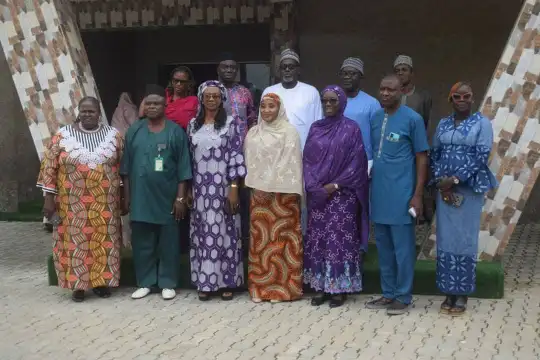16th August 2025 – Abuja –Nigeria’s Skills Agenda is gaining momentum as the National Policy Workshops on Skills Development were recently held across both the Southern and Northern zones under the Nigeria Education Sector Renewal Initiative (NESRI).
The events reinforced the country’s commitment to practical, skills-based education aimed at boosting employment and reducing poverty.
In Kano, Honourable Minister of State for Education, Prof. Suiwaba Sai’d Ahmad, said Nigeria’s future prosperity depends on a shift from rote learning to hands-on training.
According to her, “Reforms must reach classrooms, vocational centres, and teacher training institutes nationwide.” She further stressed that integrating technical and vocational education is vital to economic stability and peacebuilding.
At the Lagos workshop, Honourable Minister of Education, Dr. Maruf Tunji Alausa, CON, represented by Dr. Muyibat Olodo, reaffirmed the government’s commitment to linking education with job creation, human capital growth, and poverty alleviation.
He outlined five strategic priorities: curriculum reform, teacher training, revitalization of Technical and Vocational Education and Training (TVET), expansion of non-formal education, and stronger public-private partnerships.
Stakeholders present, including commissioners, private sector leaders, and civil society representatives, highlighted the importance of embedding coding, robotics, entrepreneurship, and creative industry programmes in schools.
Institutions like the Nigerian Educational Research and Development Council (NERDC), National Board for Technical Education (NBTE), and UNICEF pledged their support. They emphasized digital literacy, early skills training, teacher investment, and industry engagement as essential for national development.
The discussions in the North also emphasized combining traditional apprenticeships with modern TVET structures. Prof. Ahmad urged state-level implementation of these policies, calling skills an “economic and peace imperative.”
UNICEF’s representative, Mr. Munamuzunga Sikaulu, pledged collaboration while stressing recognition of non-formal learning pathways.
The workshops concluded with a unified position that “skills are the new currency of survival.” From Lagos to Maiduguri, the message was clear: practical education is no longer optional but urgent for Nigeria’s progress.

